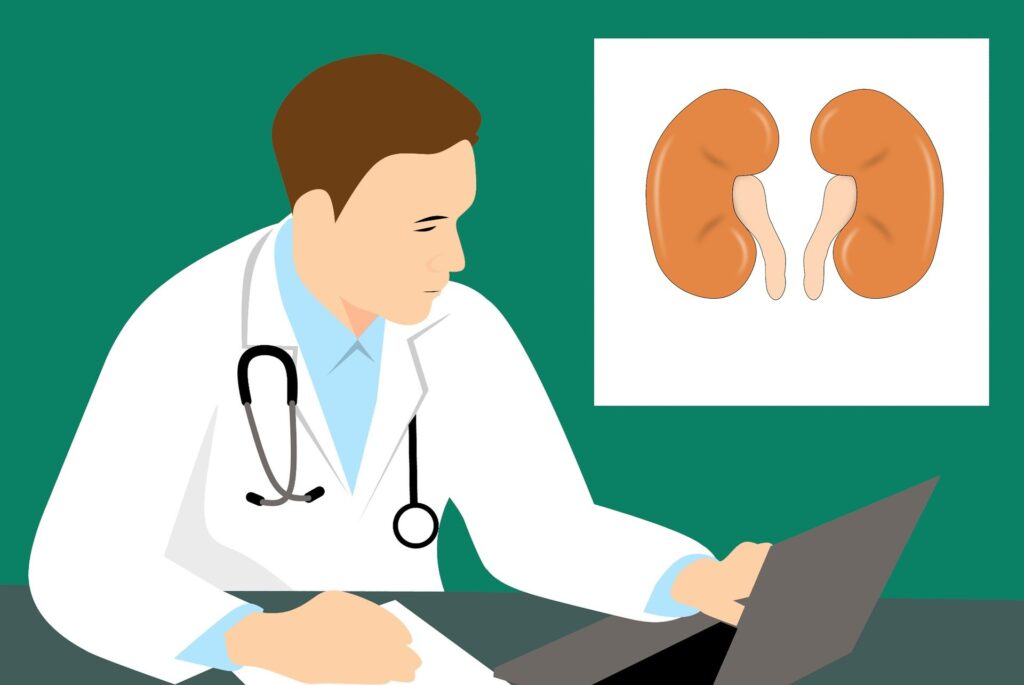Your regular diet affects the health and function of your kidneys. Each day, your kidneys filter more than 200 liters of blood, eliminating waste and extra water. Thus, your kidneys are affected daily by the type and quantity of food you eat.

Naturally, the most common causes of chronic kidney disease—diabetes, hypertension, coronary artery disease, and obesity—all contribute to the damage that causes your kidneys to fail. Additionally, problems with the urinary tract and irritation in various kidney regions might lead to long-term practical degradation. These crucial causes of kidney illness or disappointment are frequently referred to as lifestyle issues. These issues arise from bad habits and vices, but they are also frequently brought on by what you consume and how you eat it.
Your kidneys’ health and functionality are continually influenced by the food you eat. Every day, your kidneys filter more than 200 liters of blood, eliminating waste and extra water. You put in more effort the more you eat you have kidneys. Therefore, the quantity and quality of the food you eat each day affects your kidneys. If you don’t eat the correct foods, you run a higher risk of developing kidney disease, which is difficult to diagnose in its early stages.
Obviously, diabetes, hypertension, coronary illness and corpulence are the most widely recognized reasons for ongoing kidney sickness, each adding to the harm that makes your kidneys fall flat. Likewise, urinary plot issues and aggravation in various pieces of the kidney can likewise prompt long haul practical decay. These essential drivers of kidney infection or disappointment are regularly known as way of life problems. Such problems create because of unfortunate ways of life and vices and prevalently because of the food you eat and how you eat it.
The food you eat consistently directs the wellbeing and capability of your kidneys. Your kidneys channel more than 200 liters of blood every day, disposing of waste and overabundance water. Your kidneys work harder the more food you consume.. Thus, both the quality and amount of food influence your kidneys everyday. In the event that you don’t eat the right food, you are at an expanded gamble of kidney sickness, which is hard to distinguish in its beginning phases.
What foods are actually beneficial for dialysis patients remains the main problem, which is now resolved.
• Protein – Renal dieticians advise dialysis patients to follow a high-protein diet. A recommendation of 1.2g/kg for the optimal body weight has been made. Maintaining stable blood protein levels is essential to prevent dry weight loss and make up for losses caused by dialysis.
• Grains– oats, and bread – Some people may need to limit their calorie intake to lose weight or control their blood sugar. If you don’t fit into this category, you are free to consume as much of this dietary type as you choose. Breads, cereals, and grains are excellent sources of calories. In any case, unlike regular folks who are advised to drink the entire Dialysis patients are advised to minimize their intake of refined foods like Maida, white bread, and other products to lower their potassium and phosphorus intake.
• Vegetables/Mixed greens – All vegetables contain potassium, but some have more than others and should be consumed in moderation or avoided. Limiting your intake of potassium protects your heart. Before using, potassium-rich vegetables should be filtered. Be careful while eating foods strong in potassium, such as potatoes, greens, cauliflower, brinjal, etc., as filtering in water only removes up to 70–80% of the mineral. All things considered, you can contemplate other ingredients such as cabbage, gourd vegetables, and capsicum.
• Organic foods and drinks – Natural foods like pineapple, papaya, apples, pears, guavas, strawberries, and blueberries all have high levels of potassium and can be safely consumed on days when dialysis is not taking place. In this regard, it is It is obvious that all organic products should be consumed in the recommended dosages.
Allow us additionally to remember fundamental tips that can be useful later on:
- Utilize just newly cut drained vegetables for cooking and keep away from pre-cut/put away vegetables
- Dals/Vegetables should filtered before cook
- Egg white is the most flawless type of egg whites, and 2-3 can be consumed openly consistently
- Veggie lover protein is high in potassium and phosphorus; drained vegetables and paneer two times week by week ought to be alright.
- Rice and almond milk are low in phosphorus and can be utilized rather than milk.
- To assist you with keeping away from salt, numerous spices and flavors can be utilized to make your eating regimen seriously fascinating. Check with your renal dietitian for a rundown.
Apart from the dialysis session itself, the vast majority of dialysis patients consider the food regimen and liquid restrictions to be the most discouraging aspects of their care. But it doesn’t have to be that difficult. If you are receiving the greatest possible dialysis care, which we strive to provide every day, there is really very little you can’t eat or drink by incorporating a simple workaround into your daily life. The advice is to be aware of how much food and how much time you are eating. Next, carefully plan your feasts with your nutritionist to determine your true needs.